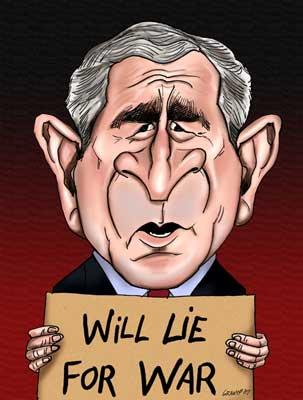
There are a lot of questions people ask when war becomes the topic of conversation.
1. Are there any benefits to war?
I know I’m speaking to an audience of diverse opinions, but I think most of us can agree that “war is bad.” It causes death and suffering, destroys entire cities, and makes people say mean things to each other [1].
The simple answer to this question is “no.”
The less-simple answer is “not really…”
Many point out the effect of WWII on the economy of the US. Our military spending and mobilization helped pull us out of the Great Depression. So yes, it’s possible for war to boost economies. But that’s not what usually happens.

Pictured: post-war economy
The only other benefit to war I can think of is that it’s a less-intelligent and sensible way of making another country do what you want. My favorite analogy to use with this topic is the “kids on a playground” analogy. One kid is playing in the other kid’s sandbox (expanding borders and reaping economic benefits), so the other kid runs up and punches him in the face (a definitive declaration of war). Don’t worry, this analogy will return.
2. Is war inevitable?
This is an interesting question that raises further questions about human nature. Is mankind disposed to violence? Will kids always beat each other up on the playground?

China, let go of Taiwan. He doesn’t like that.
This question is largely one of faith and our willingness to find alternative solutions to violence. It’s realistic to assume that we won’t see the end of war anytime soon, but that’s hardly a reason to shrug our shoulders and pick up weapons. Even if the end of war won’t come for a thousand years, or ever, we can at least work towards ending it. Because it’s really not a fun thing for anyone.
3. The ethics of preemptive strike
Ah, here’s a relevant issue.
One day on the playground, one of the smaller boys shows everyone that he’s brought a pocketknife to school (weapons of mass destruction in the hands of nations like Iran). Some boys start to back away, and other boys are provoked by the knife. The boy with the knife waves the knife around somewhat carelessly, announcing that he only has it for self-defense purposes, when one of the bigger boys pushes him over and takes the knife. “You could have hurt someone” the larger boy says as he pockets the knife.
The United States launched a preemptive strike on Iraq after some claims about weapons of mass destruction found their way into the ears of George W. Bush.

The apparently rather large ears of Mr. Bush
So, is it ethical to strike first?
I get the feeling this is what most people will be split on. Personally, I’m against the idea of striking first. Our goal should be to stand on a higher moral ground, and being the first to choose violence puts us at an equal or lower level than the nations we assume are going to do something we don’t like.
“But it saves lives!”
If that weren’t totally based on assumption I’d agree that there’s a chance we could be saving more lives than we’re taking away.
Still, we wouldn’t want someone preemptively striking us, now would we?
In any case, I’d love to hear some more opinions on anything war-related in the comments.

I have a lot of opinions on this issue so sorry if this comment becomes really long. First of all, I whole-heartedly disagree that war is never a good thing. Yes, there will always be casualties of war but in my opinion we’re all humans on this earth and if you were fortunate enough to be born into an amazing country where it is believed that all men have the right to life, liberty, and the pursuit of happiness, then it is your human responsibility to help those who were unfortunate enough to be born into tyrannical and right-less regimes. Yes, war is bad, but so is tyranny.
In regards to your second point, I think that, while it is cynical, war is inevitable and will be around for the rest of humanity’s duration. Humans inherently judge others and compare ourselves to those around us, and with so many different cultures and world views there will always be people in the world who feel it necessary to abuse those who are different from you. For this reason, I feel that evil will always be present, and it is up to the rest of the world to stand up to it.
And finally, on your third point, I would like to make a not that, though always overlooked, WMDs were not the only reason the United States invaded Iraq. Yes, the presence of WMDs was a huge reason, but there were others. Also, just as a sidenote, the UN and the IAEA supported the view that Iraq was in the possession of WMDs including biological and chemical weapons (they had used them in the Iraq-Iran war) and that they were attempting to build nuclear weapons. The UN didn’t support the US’s and UK’s intervention in the end, but then again the UN almost never supports intervention. They like talking, not doing. Finally, one of the other substantial reasons we went into Iraq was because Saddam Hussein was a known tyrannical dictator. He literally based his tactics of governance off of Stalin, holding public executions for those who disagreed with him politically. He would also kidnap the families of people who spoke out against him and force his opponents to publicly state that they fully supported him and his policies. He would then almost always kill the man and his family anyway. Over the course of the war these details were systematically ignored in order to make the Iraq War appear to be for the sole purpose of finding WMDs and getting oil. You can disagree if you wish, but that’s the truth. In the end, though, I strongly believe that war is necessary to help our fellow humans and to sometimes save them from such horrible situations. Diplomacy can only get you so far.
War in any form is pretty bad. I think that there must be a better way to handle things between different countries. This is a great blog and very informative.
War is bad. Genocide is worse. The most tear jerking feeling I ever felt in the service was watching a mother collapse atop the casket that carried her son’s body. It comes with a terrible price. But to say that it is unnecessary is naive at best. While I openly admit that our most recent foray into war may have ulterior motives, but that is only one example in a long lineage of human history. Isolationism has been proven to not work. To watch a group of people be systematically eliminated or watch the world destroy itself and do nothing is almost as bad as performing the act yourself. It is not our duty to act as planet Earth’s police force, and I agree that suffering and loss of life are definitive outcomes of war, but so are independence, justice, and liberation from oppression.
War is a necessity sometimes. Isolationism does not work all the time, as there are occassions a country needs to get in there and fight. We would still be part of Britain without war, so to say that all war is bad is just not correct. Also, war can help unify a country and strengthen its economy. War comes with a cost for sure, but so does every decision we make, sometimes the good just outweighs the bad.
As ugly and terrible as it is, I do think war can be necessary sometimes. I do think there are benefits, but the question is whether is morally acceptable to use war as a means. For instance Ott von Bismark use war to unite Germany, not that I think thats appropriate but it worked. I agree with Steven on WWII, and as much as I hate it I think it is sometimes a necessary evil in such an evil world.
First of all, perfect analogy to use. Secondly, this is an interesting topic to discuss. I can agree for sure all the porblems that war causes (death and destruction the biggesst). Unfortunately, in order to be able to solve conflicts peacefully, BOTH sides have to be willing to work for that. And tobe quite frank, there are many countries and leaders out there who seem unwilling to even consider a more peacful approach. They are just agressive. So the question is do we let these types alone to wreak havoc whenever they desire, or do we step in to protect ourselves?
To be honest, I kinda disagree that war is always bad. Yes, war is never a great thing. But sometimes war is necessary. Like Ryan said, America wouldn’t be America without war. As much as I like to believe that peace is always the answer, realistyically I feel this is not the case. There are some cases in which I feel like there are no other options (like WWII). But that’s just my opinoin, I would like to think that I am wrong and that everything can be settled through peace.
I think you mean preventive war, not preemptive war. Preemption involves being attacked first while preventive is all about making sure an enemy can’t attack whether it wants to or not. War is necessary and in some cases good. It can unify countries toward a common goal, stop an aggressive nation or regime, and/or help a nation’s economy. I know many think world peace is the answer, but that notion is outdated. War is necessary for the world economy to survive. Think what you will of it but America is America because of war.
I’m going to go the easy route and bring up WWII. There was a moral imperative to stop the holocaust that the US didn’t really heed until the fight came to our back door.
For me, WWII is an example of the necessity of war. It also places the pacifist in the difficult position of claiming that armed conflict was not necessary to stop Hitler.